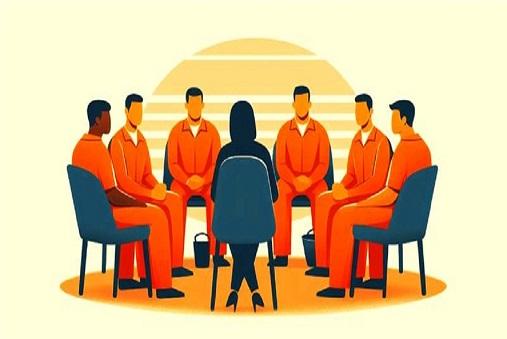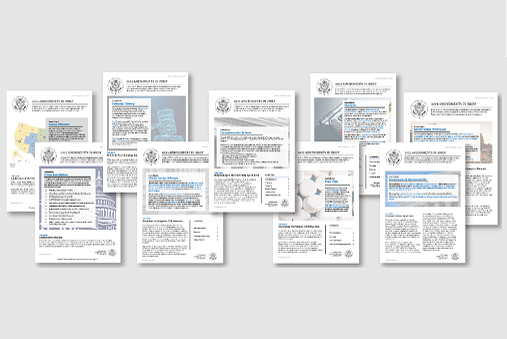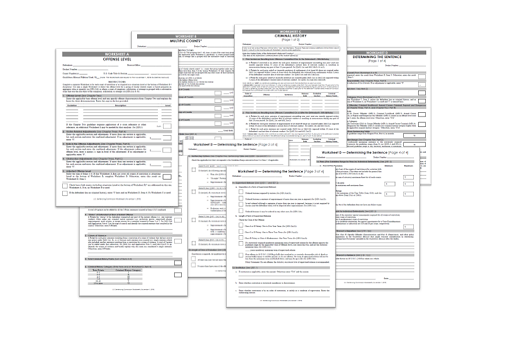The U.S. Sentencing Commission, a bipartisan, independent agency located in the judicial branch of government, was created by Congress in 1984 to reduce sentencing disparities and promote transparency and proportionality in sentencing.
The Commission collects, analyzes, and distributes a broad array of information on federal sentencing practices. The Commission also continuously establishes and amends sentencing guidelines for the judicial branch and assists the other branches in developing effective and efficient crime policy. Learn the basics of federal sentencing.
2025-2026 Amendment Cycle
Public Comment
The Commission received comment on proposed priorities for the amendment cycle ending May 1, 2026.
Federal Register Notice
The Commission seeks comment on proposed priorities for the amendment cycle ending May 1, 2026.
Public comment should be received by the Commission on or before July 18, 2025.
Federal Register Notice
The Commission published final priorities for the amendment cycle ending May 1, 2026.
Press Release
Commission votes to adopt policy priorities.
Event
A public meeting of the Commission was held on Wednesday, August 6, 2025 at 3:00 p.m. (EDT) pursuant to Rule 3.2 of the Rules of Practice and Procedure of the United States Sentencing Commission. This meeting was livestreamed.
Event
A public hearing will be held on Monday, March 9 to receive testimony on proposed amendments to the federal sentencing guidelines.
This event will be live-streamed and recorded.
Video
This data handout is intended to inform public comment on a proposed circuit conflicts amendment. Deadline: March 18, 2026
Event
A public hearing was held on Tuesday, February 17 to receive testimony on proposed amendments to the federal sentencing guidelines.
This event was live-streamed and recorded.
Video
This data briefing is intended to inform public comment on a proposed amendment regarding human smuggling offenses. Deadline: March 18, 2026.
Video
This data briefing is intended to inform public comment on a proposed amendment relating to individuals sentenced under the career offender guideline. Deadline: March 18, 2026.
Video
This data briefing is intended to inform public comment on a proposed amendment regarding sentencing options. Deadline: March 18, 2026.
Public Comment
The Commission is currently receiving comment on proposed 2026 amendments.
Federal Register Notice
The Commission published additional proposed amendments for the amendment cycle ending May 1, 2026.
Video
This data briefing is intended to inform public comment on several proposed Economic Crime amendments. Deadline: February 10, 2026
Video
This supplemental data briefing is intended to inform public comment on a proposed amendment relating to methamphetamine offenses. Deadline: February 10, 2026
Amendments
This document contains unofficial text of proposed amendments to the sentencing guidelines provided only for the convenience of the user in the preparation of public comment.
The Commission is seeking comment on these proposals through March 18, 2026.
Press Release
The Commission published additional proposed amendments and issues for comment for the amendment cycle ending May 1, 2026.












